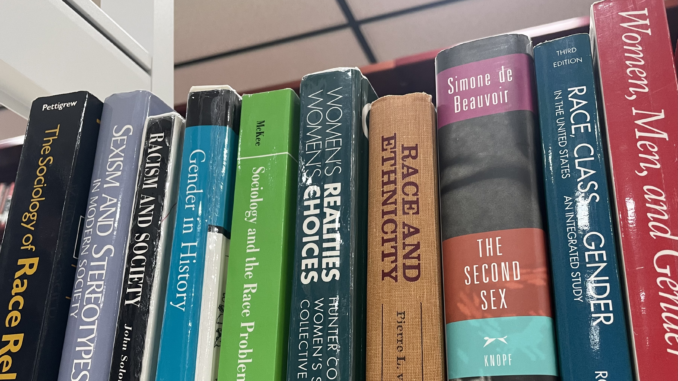
Ethnic studies and women’s, gender and sexuality studies (WGSS) are two of the youngest and smallest departments at Albion. Despite only having 12 majors and minors between them this semester, these departments are crucial to the whole student body, as each student must fulfill Albion’s ethnicity studies and gender studies category requirements.
Last spring, faculty made the decision to merge WGSS and ethnic studies into one department. A few months later, WGSS and ethnic studies majors and minors received an email on Aug. 20 announcing that the departments were merging, but the change wouldn’t affect current students. Associate professor of biology Abigail Cahill and associate professor of psychological science Eric Hill are the co-chairs of the new merged department.
The decision, according to Cahill, was the product of several factors, but ultimately “there was not one single conversation that led to this.”
WGSS and ethnic studies, along with international studies, have all always been chaired by a faculty member outside the department. For years, each of the three departments only had one faculty member, and it was decided that none of these faculty should be their own department chair, Cahill said. Accordingly, these three departments have always been advised by a committee made up of faculty members from other departments, and have been chaired by rotating members of those advisory committees.
Cahill has been the chair of WGSS for the past two years, and Hill is standing in as ethnic studies department chair for this semester until professor Elizabeth Barrios gets back from sabbatical. In the future, the WGSS and ethnic studies department will have one department chair.
“By bringing the two advisory committees together, you’ve got people that are in general interested in issues of social justice,” Hill said. “I think now we have like 15 people; it’s all people that are interested in building community on campus.”
Cahill said that the road to merging unconsciously started when assistant professor Lucia Soriano was hired as a joint professor of both WGSS and ethnic studies, something that was a first for the college.
Cahill said it’s been “challenging” for Soriano to report to two different department chairs and attend two different department meetings, and that merging into one department eases that “burden.” The merger is also an attempt to “create stability out of what has been a really tumultuous staffing situation, particularly in ethnic studies,” Cahill said.
Former associate professor of ethnic studies Dominick Quinney was at Albion from 2013 to August of 2024. Professor of WGSS Trisha Franzen will be retiring in the spring, after which Soriano will be the only professor in the WGSS and ethnic studies department.
“I think it’s a good opportunity for us to look to (Soriano) to help build the kind of department that she wants to be in, and to hire the kind of colleague that she wants to work with,” Hill said.
Soriano said there is “some risk involved in the merging,” in terms of her being the only faculty member.
“It’s important for the college – for the administration – to be intentional, to really be careful to not make it seem like they’re erasing WGSS and ethnic studies,” Soriano said. “They will need to sort of step up and make sure that there is a faculty line, so that I’m not the only faculty member left, because then we can’t offer a well rounded assortment of course offerings.”
WGSS and ethnic studies are both “crucial to a liberal arts education,” Soriano said. While they do “intersect in some very powerful ways,” they also serve different communities and have distinct histories, Soriano added.
“The danger is that these mergers can often unintentionally make these fields less visible or just send a message that they’re not worthy of distinct support on campuses,” Soriano said.
In Hill’s eyes, the merge is a “great step” for “building student interest.” Cahill said that “nothing should change” for majors and minors in the department, and the changes will be most noticeable to faculty and administration.
South Bend, Indiana, senior Ayéni Lianez used to be an ethnic studies major, but switched to being a history major with an ethnic studies minor after Quinney left.
“I wouldn’t have been able to finish the ethnic studies degree,” Lianez said. “There simply weren’t enough classes available, or professors.”
Lianez added the department merge is “a very good change,” and they think it makes the ethnic studies department “stronger” to be merged with WGSS.
Holly senior and WGSS and political science double major Kristen Stark said she’s “excited” about the merge, and “really supportive of it.”
“They’ve always kind of seemed hand in hand anyways,” Stark said. “You can’t talk about women’s issues without talking about ethnicities issues.”
Soriano said she hopes the administration keeps in mind that ethnic studies and WGSS are both “essential,” and that students will see “robust course offerings, dedicated faculty lines and clear institutional support.”
“It’s important that we remember how vital of a role that both of these disciplines play,” Soriano said. “Their survival is extremely important.”

Leave a Reply